
Renault Kadjar Review

Introduction
Those unfamiliar with the inner workings of the car industry might be surprised to find just how common badge engineering can be. It sounds complicated, but the idea essentially involves taking a car, popping a different badge on the front and selling it as something else. Sometimes car makers do this without shame, substituting little but the shiny badge at the front when they create an “all-new” car. But others, including Renault, are more subtle about it, fitting a new body and a new interior to hide the identical underpinnings.
That’s pretty much what’s happened with the Renault Kadjar, a car that’s heavily based on the ever-popular Nissan Qashqai, but comes with its own curvaceous style. If you can hide the underpinnings of the best-selling SUV in the UK under a new skin, why wouldn’t you? And if you can also find competitive lease deals for such a vehicle, it becomes a bit of a no-brainer.
Oh, and the name? Better not to ask.
Review Sections
Select's rating score* - 3.7 / 5
At a Glance
The Kadjar is a spacious family SUV that probably makes most sense in its lowliest guises. The entry-level Iconic model comes with pretty much everything you want, including satellite navigation, a reversing camera and two-zone climate control, not to mention keyless entry and diamond-cut alloy wheels.
Going for a more luxurious version will get you leather upholstery and bigger wheels, but they’re fripperies you can do without. And the fact that higher-end versions don’t add much is one of the Kadjar’s weak spots. Yes, the basic version is well kitted out, but that isn’t so true of the more expensive versions, which should be more generously equipped.
Stick with the Iconic, then, and you’ll get decent value from a roomy family bus.

Key Features
The Kadjar’s real selling point is the amount of space and equipment you get as standard – particularly when compared with the enormously popular Qashqai. But one of the most appealing facets of this car is its style.
Renault has spent the past few years building some very good looking cars, but it doesn’t always get the credit it deserves. So here we go. The Clio, Captur and Megane are all lookers, but the Kadjar is arguably the jewel in the crown. It might not be especially snazzy or dramatic, yet it still has this understated, clean image with just the right amount of class.
Think of it like a rich bloke in a country pub. He isn’t wearing an Armani suit or a diamond-encrusted grandfather clock on his wrist – he’s got a pair of clean Levi’s and a classic, medium-sized Patek Phillipe on his wrist. It’s all good stuff, but it isn’t ostentatious or over-the-top, so it makes him look at home in pretty much any situation. And the Kadjar is exactly the same.
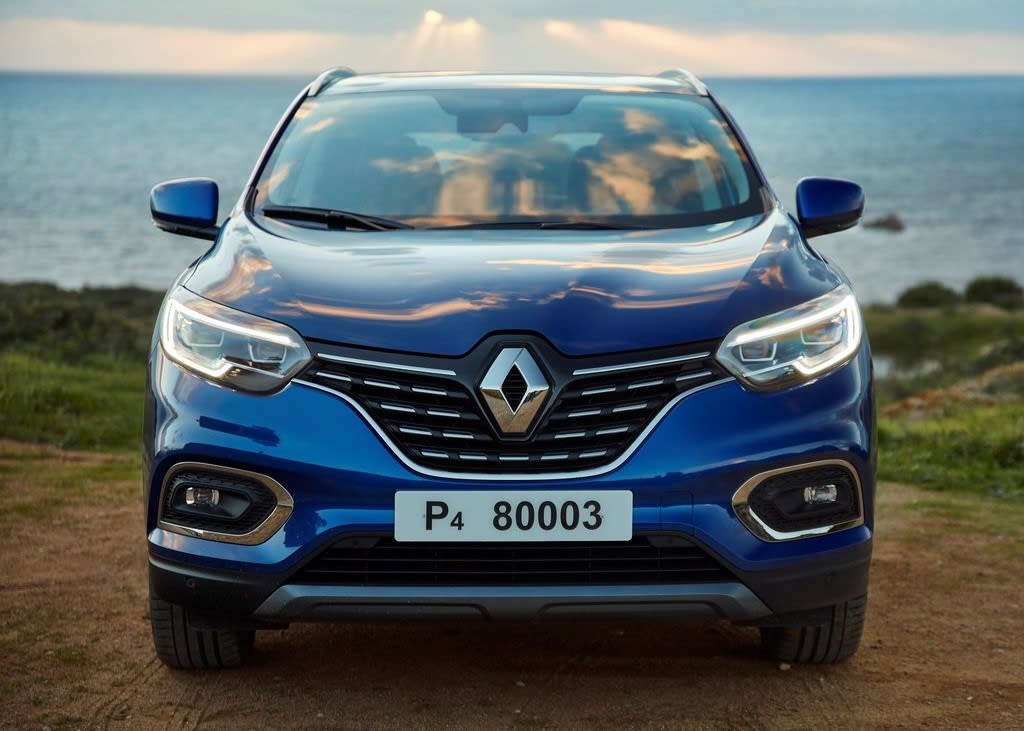
Performance & Drive
The Renault’s engine range is pretty simple, with just one 1.3-litre petrol engine on the menu. Once upon a time, Renault would sell you a 1.7-litre diesel Kadjar that was available with four-wheel drive, but these days it’s front-drive petrol power all the way.
That means you get 140hp at the disposal of your right foot, and a six-speed manual gearbox comes as standard. And if you want to pair this TCe 140 engine with a seven-speed ‘EDC’ automatic gearbox, you can.
Choosing that transmission will give you the faster car, but everything is relative. The dash from 0-62mph takes an unremarkable 9.5 seconds, which is ‘fine’, rather than ‘fast’, but it’s three tenths faster than the six-speed manual. Both have a top speed of 124mph.
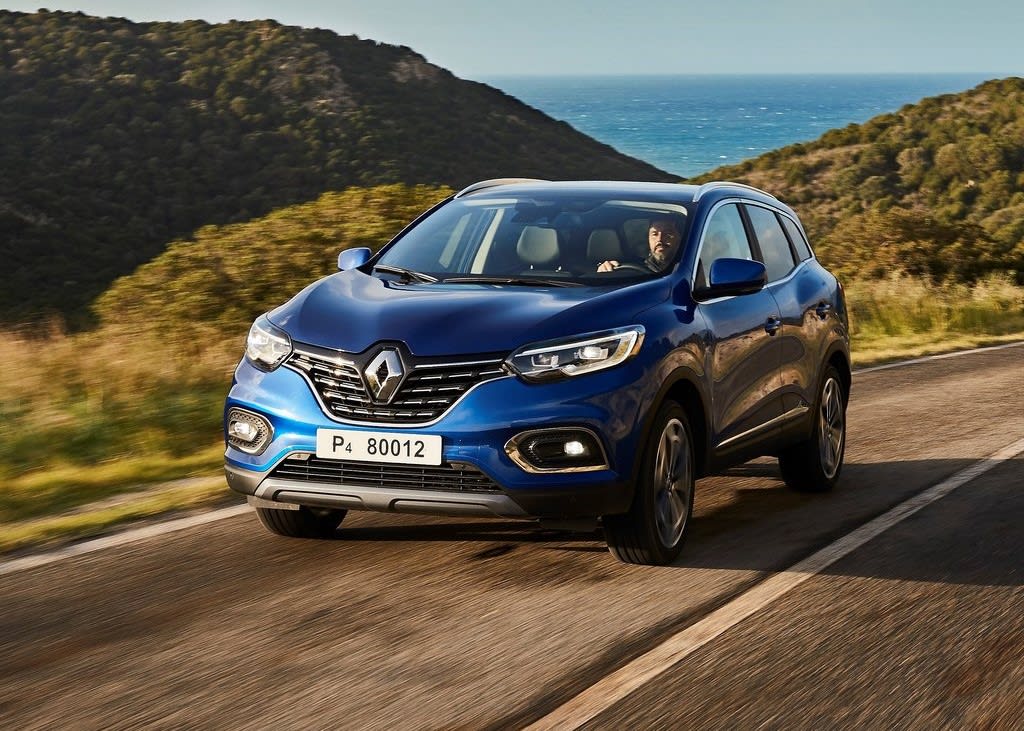
Out on the asphalt, the Kadjar isn’t quite the class act the external image might portray, but it’s still a very competent all-rounder. The ride is a little firmer than that of the super-supple Nissan Qashqai, but it’s still perfectly acceptable – especially considering the stable and reassuring handling characteristics.
Unlike a Mazda CX-5, this isn’t the sort of car you can chuck about like a hot hatchback, but the car feels planted and composed under your backside. That gives you confidence in the car’s abilities, and makes it feel very mature on the road, despite the steering that’s slightly too light. It works well at low speed and around town, but it lacks any kind of feel when you’re driving faster.
And now there’s no four-wheel-drive option, the Kadjar is hardly an off-road demon. The 200mm of ground clearance might be useful when you’re mounting kerbs, but this is definitely a car that’s more at home in the urban jungle than a proper rainforest.
Running costs
With just one engine in the offing, there’s no decision to make under the bonnet – you’re stuck with the TCe 140 engine or nothing. That means you’ll be getting around 44mpg on a long run no matter which gearbox you choose, although sticklers for detail will notice the automatic transmission is marginally more economical.
Delve deep into the figures and that’s true; the auto ‘box manages between 44.1 and 44.8mpg on the official economy test, whereas the manual gets you between 43.5 and 44.8mpg. Are you going to notice the difference in the real world? Probably not.
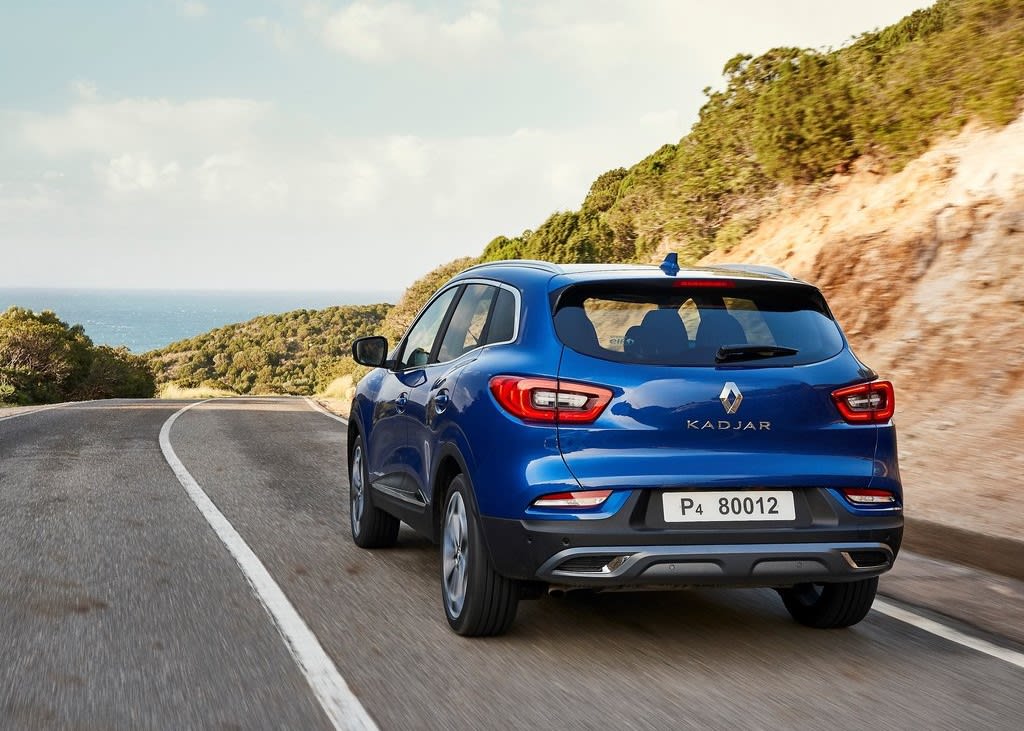
Emissions
Again, there’s little choice for the company car driver or eco-conscious motorist when it comes to picking a Kadjar. However, choosing the right specification and gearbox could make a small difference when it comes to company car Benefit-in-Kind (BiK) tax. Automatic versions of the Kadjar emit between 142 and 145g of carbon dioxide per kilometre, while manual versions produce 143 to 146g.
It’s a minute change, but with cars producing 140-144g/km in the 32% tax bracket and those producing 145-149g/km incurring 33% tax, it might be worth seeing where your chosen trim level puts you. If it leaves you on the borderline, switching to the automatic gearbox might save you some money – albeit only a little.
Interior
Although French cars don’t always have great reputations for build quality and reliability, the Kadjar is surprisingly solid inside. The design isn’t especially inspiring, and there are some drab colours littered around the cockpit, but the fit and finish is generally quite good. A few hard plastics are on display around your knees and below, but the main dashboard feels quite soft to the touch.
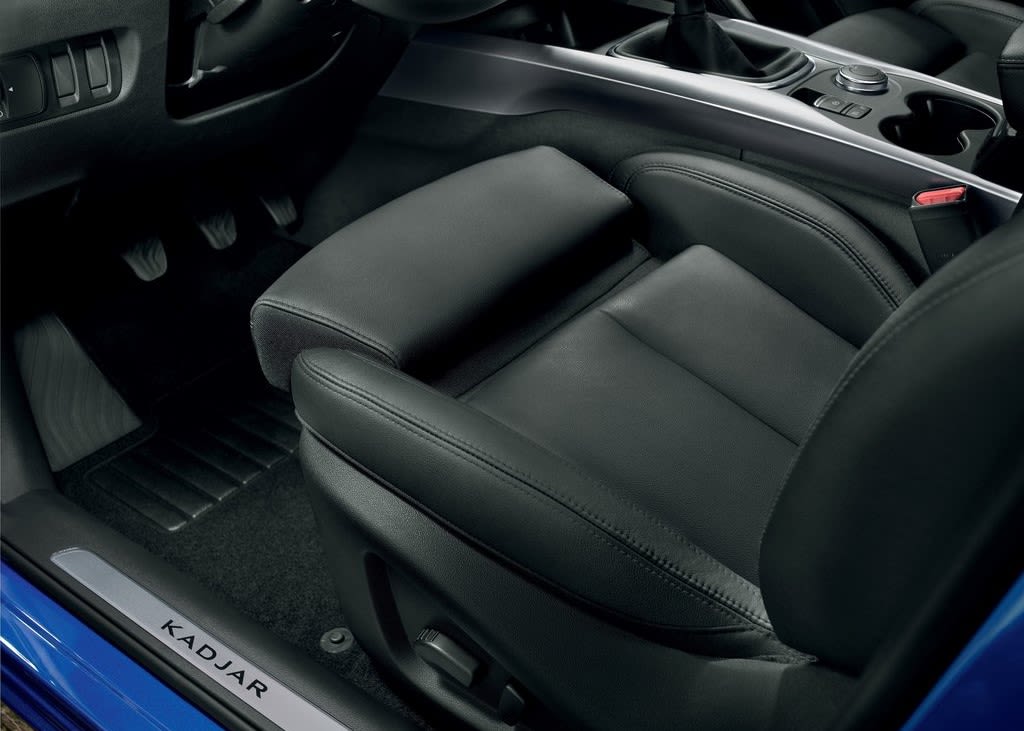
Big, chunky rotary dials allow you to influence the climate control, which is much more ergonomic than some infotainment sub-menu, but there are some quirks that won’t be to everyone’s taste. Some of the audio controls, for example, are positioned on a little island out on the right of the steering column. That might make some sense in left-hand-drive cars with the infotainment on the driver’s right, but it seems odd in UK-spec cars. And that’s before we consider the practicalities of using those switches on the move.
Technology
The Kadjar is not the most technologically advanced SUV on the market, but the basic versions still get a competitive seven-inch infotainment system. The R-Link 2 system isn’t the greatest you’ll come across, but it’s functional and has big ‘on-screen’ buttons, which make life easier for those with more generously proportioned digits.
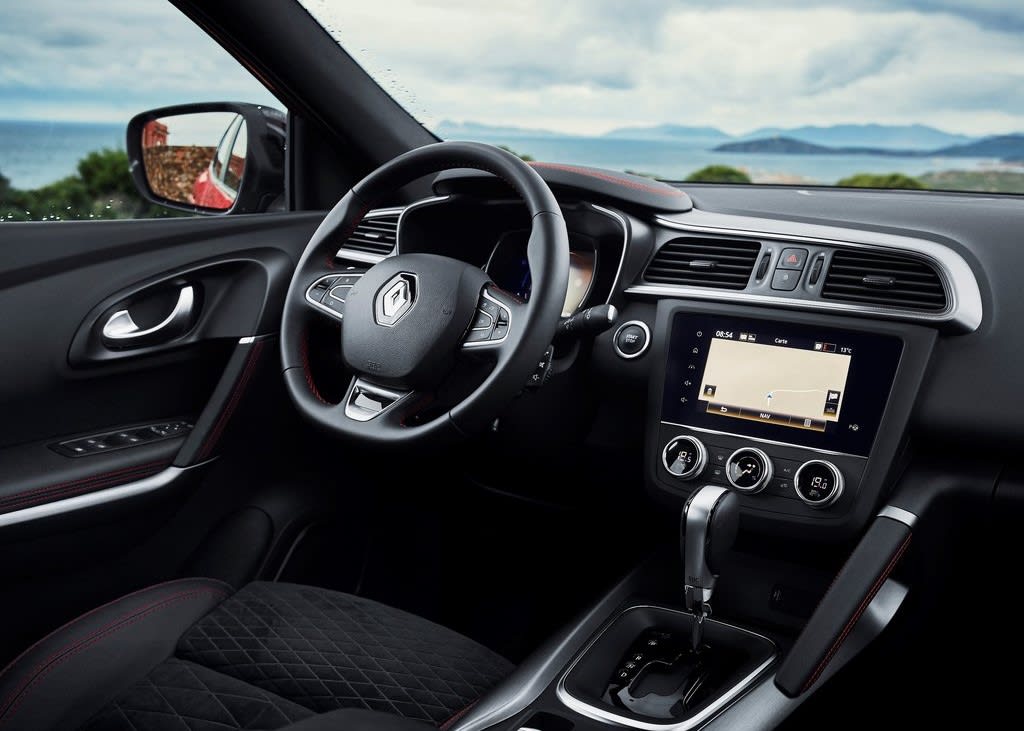
Sadly, the R-Link 2 isn’t that quick to respond to any prods from the aforementioned fingers, and clunky graphics make it look a bit old hat. That said, it now comes with Android Auto and Apple CarPlay as standard, making the graphics challenges a little less pronounced. And when you compare it with the naff system in the Qashqai – a car that’s still one of Britain’s top sellers – it’s on another level.
Practicality & Boot Space
Although the Kadjar shares much with the Nissan Qashqai, it’s slightly more spacious inside. The 472-litre boot is noticeably larger than that of the popular Japanese model and there’s just as much room in the cabin. Okay, some other rivals have even more space inside, but the Kadjar is competitive for the class, offering more than enough space for most.
Four adults will be perfectly comfortable in the Renault, with those in the back benefitting from decent levels of leg- and head-room. It isn’t exactly cavernous back there – especially if you go for the panoramic glass roof – but it’s by no means cramped.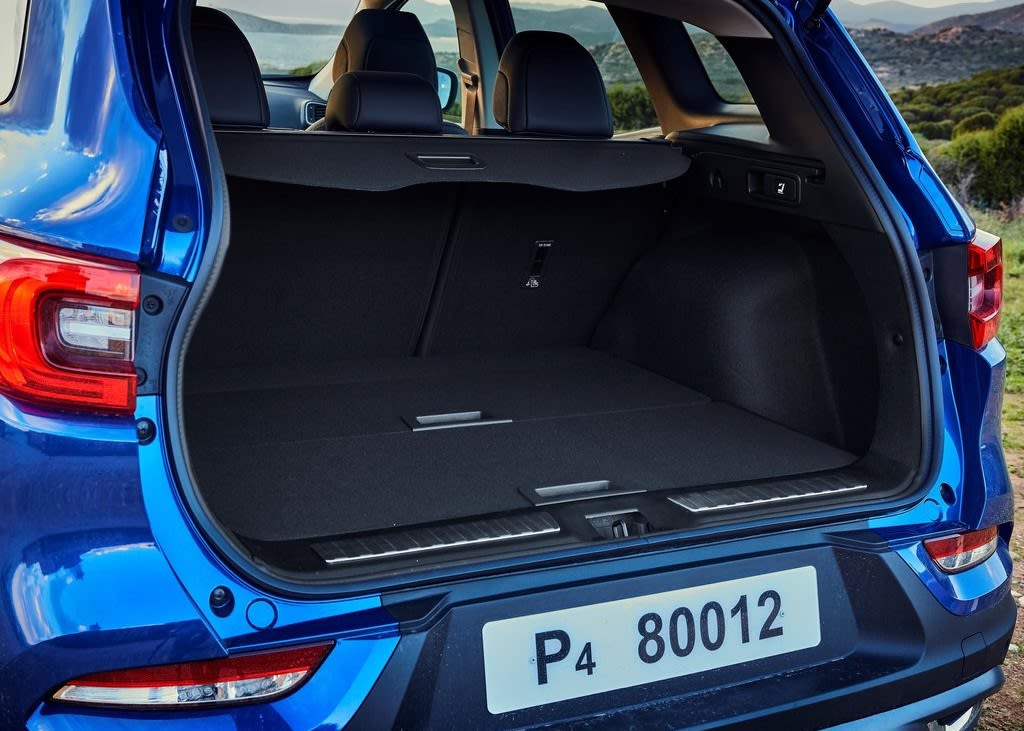
If you want to swap rear seats for luggage space, the back bench folds down in a 60/40 split, meaning two of the seats fold together while the other folds independently. Knocking them down is a relatively simple process, and you’ll be left with a 1,478-litre space in which to stow things. Again, it isn’t class-leading in terms of space, but there’s more than you’ll find in a Qashqai.
Safety
Those buying an SUV for the peace of mind and perceived safety of a taller car won’t be disappointed by the Kadjar’s crash test performance. When the car was launched in 2015, it scored five stars in the Euro NCAP test, with respectable scores across the board. Admittedly, the test has evolved since then and newer models will provide more safety kit, but the Renault will still offer good protection should the worst happen.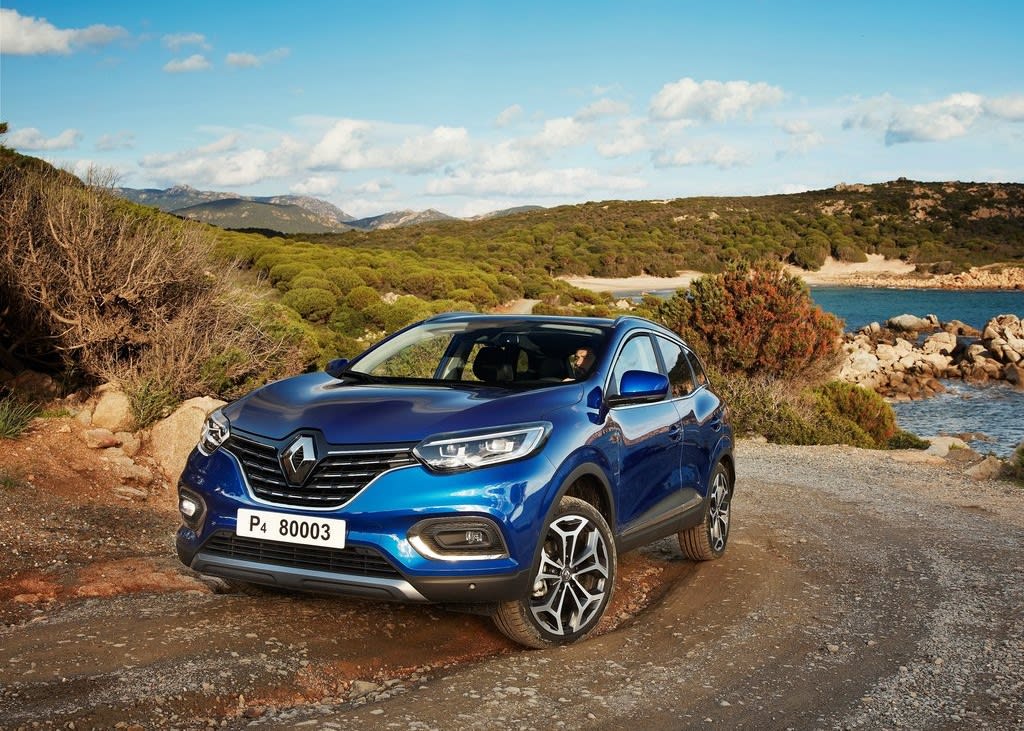
In a bid to prevent that happening at all, though, the Kadjar has been fitted with a host of safety systems including emergency braking assistance and lane departure warning. Further up the range, the S Edition adds a blind-spot warning system to tell you when there’s a vehicle in the blind spot over your shoulders, while the GT Line gets traffic sign recognition and a system to tell you when you’re breaking the speed limit.
Options
The Kadjar range is pretty simple, with just three trim levels to choose from. Things kick off with the Iconic, which is surprisingly well equipped for an entry-level version. Not only do you get 17-inch alloy wheels and tinted rear windows, but you’ll also find satellite navigation, two-zone climate control and push-button keyless ignition thrown in. And that’s before we mention the automatic lights, front and rear parking sensors or the reversing camera. It’s pretty much all you need.
If you really want more, you can go for the mid-range S Edition, which gets a few extra safety gizmos and bigger, 18-inch alloy wheels. Those goodies are joined by roof rails, LED headlights and black synthetic leather upholstery.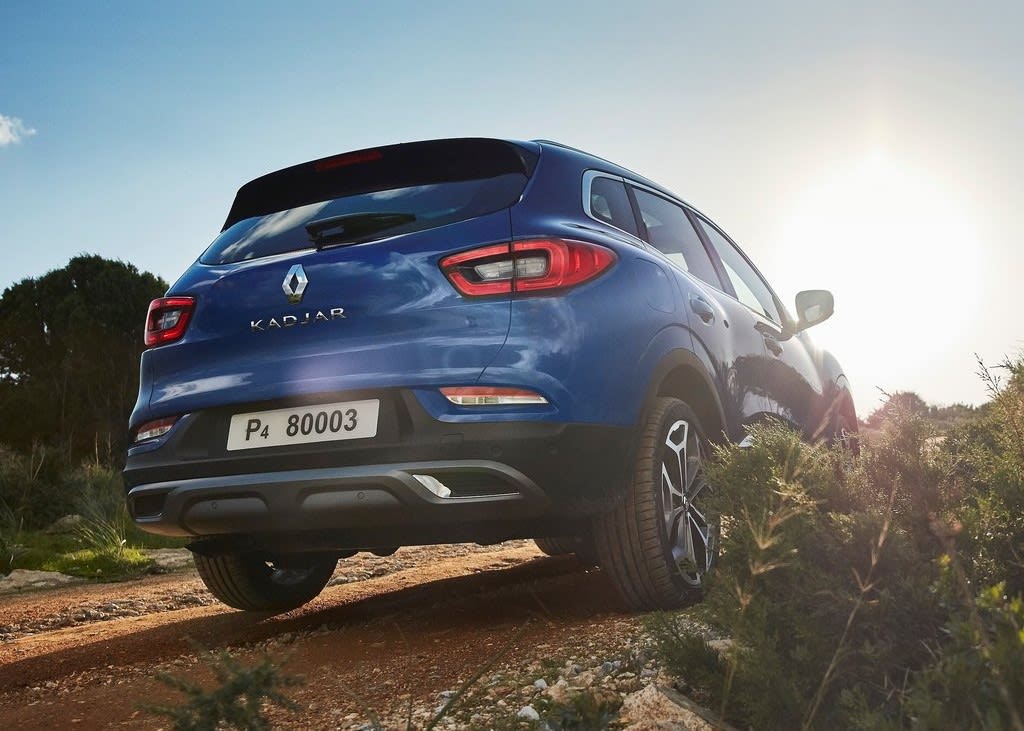
Finally, the range is topped off by the GT Line, which is marked out by even larger 19-inch alloy wheels and leather upholstery – the stuff that actually came from a cow. Also headlining this high-specification model are heated front seats and a Bose sound system with seven speakers, a digital amplifier and a subwoofer.
If you want to add to that, you’ll find the options list relatively barren, with a space-saver spare wheel and a panoramic glass roof accounting for most of the available extras. You can have some accessories such as illuminated door sills, some side steps or a pet pack with a boot partition grille, but otherwise it’s just a case of picking your colour.
As is so often the case, the paint jobs on offer are mostly monochrome, with varying shades of white, grey, silver and black forming the majority of the palette. You can have one of two rather striking blues, though, or you can opt for the lustrous Flame Red.
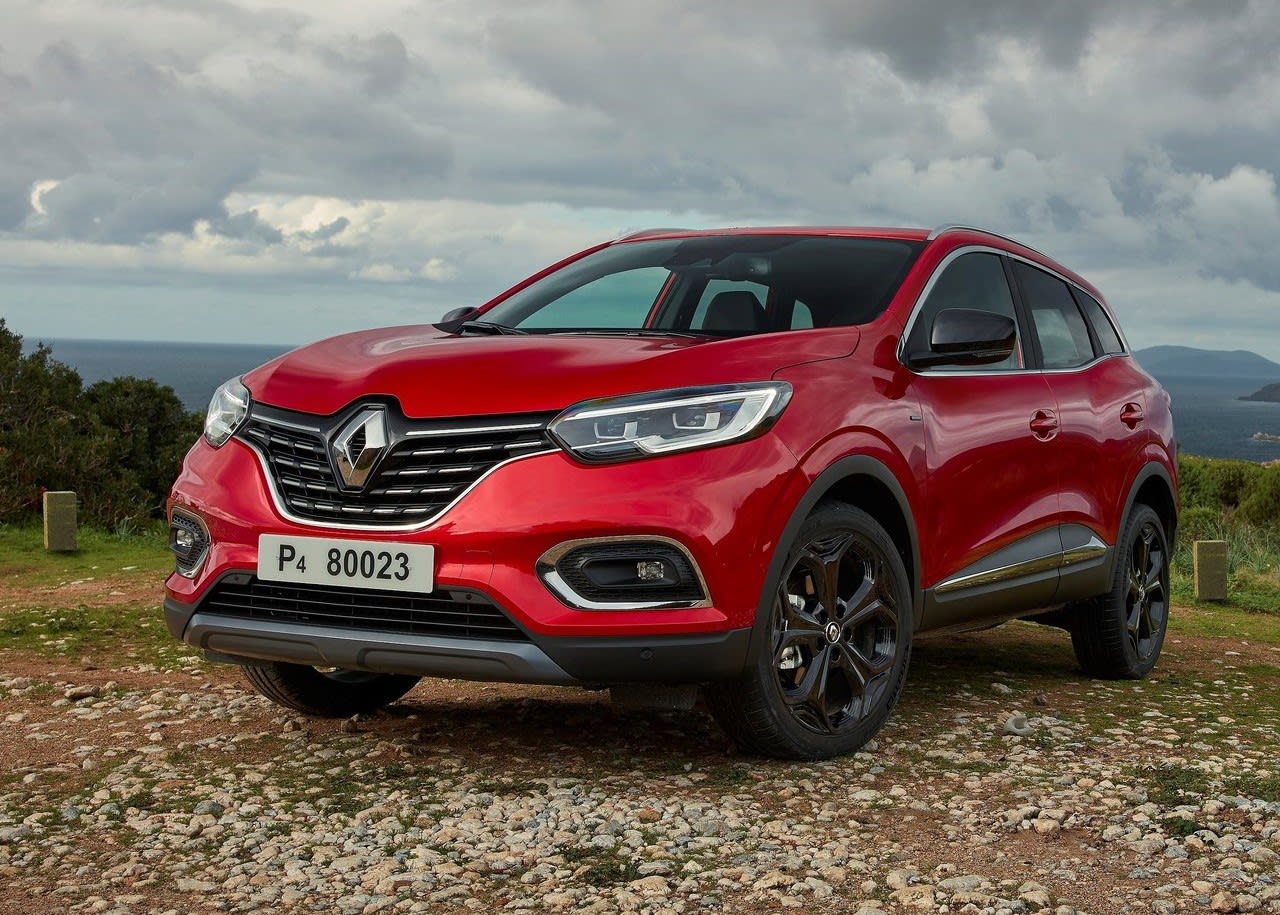
Rival Cars
Just like any other SUV in this class, the Kadjar’s greatest competitor is the Nissan Qashqai – a car that’s one of the UK’s most popular models. But for the Kadjar, the battle is as personal as it is professional. With so much shared hardware, there is obvious crossover between the two, but the Nissan is perhaps a more rounded package.
Other key contenders include the Kia Sportage, Seat Ateca and Skoda Karoq, all of which offer comfort and technology in spades. The Mazda CX-30 is the driver’s choice, along with the latest-generation Ford Kuga, while the fresh-faced Hyundai Tucson will have earned plenty of fans with its bold new look and high-tech cabin, as will the Peugeot 3008.
But these high-riding cars aren’t just competing with each other; they’re up against the more conventional family hatchbacks, too. That means the ever-popular VW Golf and Ford Focus are on the cards, along with the surprisingly capable Seat Leon, the super-comfy Vauxhall Astra and the sporty-looking Hyundai i30. It’s worth looking at the Kia Ceed, too, along with the likes of the Renault Megane and the Citroen C4 pseudo-SUV.
Verdict & Next Steps
If you’re after an SUV that’s spacious and stylish, the Kadjar is deserving of a place on your shortlist. It might not be the most exciting car in this competitive marketplace, but it’s one of the classiest to look at and it boasts plenty of room inside. If you’re in the market for a Qashqai or one of its rivals, take a look at this before you sign on the dotted line.
Where to next?
View latest Renault Kadjar easing deals - guide price from £244.52 per month inc VAT**
Looking for a great leasing deal? Check out our incredible range of car lease deals
New SUV? Read our latest Reviews and find the right model for you
Want to know more about leasing? Take a look at our comprehensive Leasing Guides
Interested in everything motoring? Why not catch up on all the latest Car Leasing News.
*Score based on Select’s unique meta score analysis, taking into account the UK’s top five leading independent car website reviews of the Renault Kadjar
**Correct as of 10/05/2021. Based on 9 months initial payment, 5,000 miles over a 48 month lease. Initial payment equivalent to 9 monthly payments or £2200.69 Ts and Cs apply. Credit is subject to status.





















